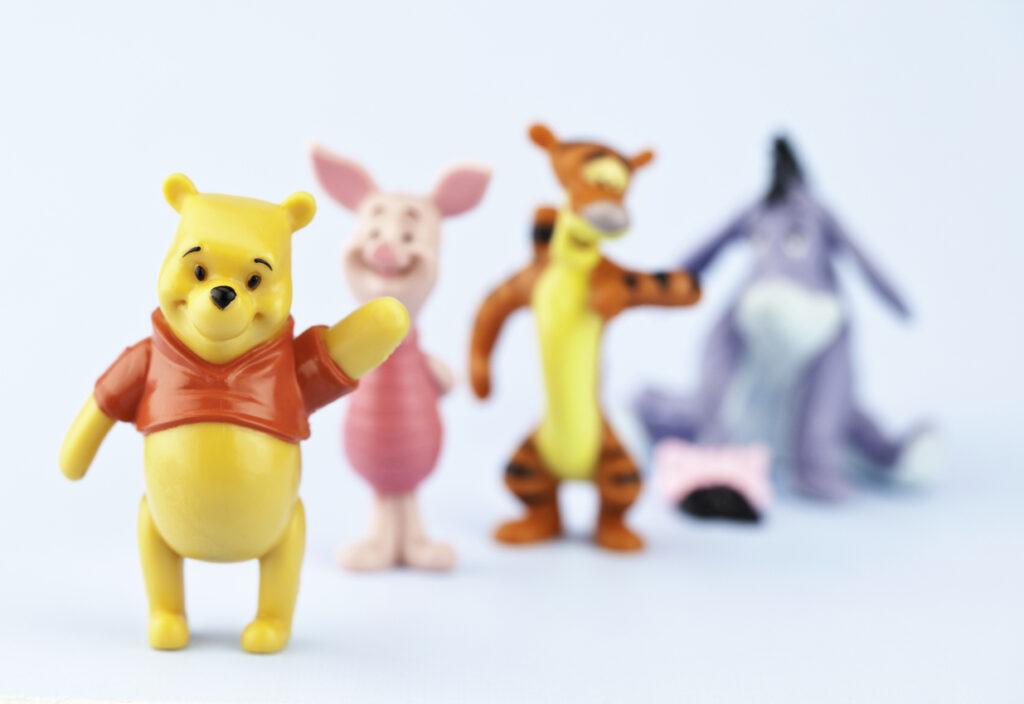What can we learn from Winnie the Pooh in the new Christopher Robin film? That doing nothing from time to time should not be sniffed at.
Last week, I went to the cinema to see the Christopher Robin film with my mum (we are both big fans of Winnie the Pooh). I was anticipating a heartwarming film that brought back fond childhood memories of reading the books and watching the TV series of Pooh’s adventures with his friends in the Hundred Acre Wood – and I certainly did experience this pleasant nostalgia.
But what I wasn’t expecting to receive was a lesson on the importance of work-life balance….or, better yet, the importance of doing nothing.
For those who haven’t seen the film (and I recommend you do), it’s set during Christopher Robin’s adult life. As an efficiency expert at Winslow Luggages, Robin feels compelled to work extremely hard to help save the struggling business and prevent its workers from losing their jobs, but this is at the expense of his family life. His wife, Evelyn, and young daughter, Madeline, barely get to see him or spend quality time with him, and feel increasingly neglected.
When at the start of the film Robin’s boss Giles Winslow Jr. demands that he works over the weekend to create a plan for decreasing expenditure by 20%, he tells Robin that “nothing comes from nothing.” Sacrifices have to be made in order to ‘get by’ in life.
People often find it difficult to take time for themselves. Even 10 minutes of meditation each day seems like a challenge to squeeze in.
Robin obeys his boss, and misses out on a weekend away with his family in their countryside cottage in Sussex. Soon after, Pooh and Christopher Robin are reunited (much to Robin’s surprise), and several times throughout the film, Winslow Jr.’s assertion that “nothing comes from nothing” is challenged by Pooh – the silly old bear’s own take on it being that “Doing nothing leads to the very best of somethings.”
Doing nothing – to look after our health
This is an important lesson for leaders – both for themselves and for their employees. The media today regularly reports on the many negative impacts of our ‘always-on’, ‘tech-obsessed’ culture.
Our dependence on smartphones is playing havoc with our mental health, stress levels are through the roof as technology enables the blurring of lines between work and home life, and the effect of screen time on sleep deprivation is now widely known. These serious health impacts should not be ignored by employers.
Doing nothing – to process our day
But doing ‘nothing’ is not just something we should advocate for health purposes. It’s incredibly easy to go through the day in a complete whirlwind of autopilot activities without pausing to take stock, to reflect, to rest. Taking the time to step back from our demanding schedule to relax and let our mind aimlessly wander should not be seen as an idle waste of time.
Daydreaming is often an activity that can help us process information, refocus our priorities and come up with great ideas. So allowing ourselves and our employees to pop their head up into the clouds from time to time is going to reap benefits both for the individual and the business they work for.
Doing nothing – for clarity and creativity
Another kind of ‘doing nothing’ (using the term loosely) that’s been around for thousands of years in Eastern traditions, but recently became popularised in secular Western culture, is mindfulness meditation.
Mindfulness is now fairly mainstream – the therapy is now available on the NHS and you’ve also likely heard of Andy Puddicombe’s extremely popular Headspace app. Businesses are even starting to introduce mindfulness programmes into their workplace as part of their wider wellbeing activities.
This form of meditation is about being in the present moment… being more attuned to and aware of your surroundings, as well as your own thoughts and feelings. Practising mindfulness can help you detach your mind from ruminating, unhelpful thoughts, find clarity and reduce stress. It is also linked with creative ability.
Taking downtime to daydream, ponder, pause or meditate is so important for keeping healthy and allowing our brains to get creative.
According to the World Economic Forum, creativity is one of the top three skills employers are on the lookout for in 2020. The second and first most desired skills are critical thinking and complex problem solving, respectively.
I would argue that all three of these skills are best honed in a working environment that encourages people to take a step back from the daily grind, pause for a moment and do a little nothing, whatever their preferred choice of nothing may be.
Communicate to your people that it’s OK to pause
I think we could all learn a lesson or two from the bear with a big heart. People often find it difficult to take time for themselves. Even 10 minutes of meditation each day seems like a challenge to squeeze in. But taking this downtime to daydream, ponder, pause or meditate is so important for keeping healthy and allowing our brains to get creative.
And it’s good practice for employers to encourage and support their workers with taking these occasional mental breaks.
Without this prompt, they may feel like it’s expected of them to work tirelessly all hours of the working day – an exploit that is simply not realistic.
So when your team feel like they don’t have time to pause, remind them of Pooh’s wise words: “People say nothing is impossible, but I do nothing everyday.”






